Only success in adversity makes a real leader.
In September of 1770, Bernardo de Gálvez stood on the banks of the Pecos River with 125 of his soldiers. Low on food, almost out of supplies, they staggered with exhaustion. Even their horses, the ones they rode, heavy laden with armor and spears, and the back-ups from the remuda, stood on shaking legs, heads down, too tired to do more than lap water from the muddy river.
For twenty days, his men had followed Gálvez across the dry, barren, cholla and cactus studded wastes of West Texas. From Chihuahua, they had ridden north to the Pecos in search of a marauding Apache tribe. The natives had continued to raid the small Spanish settlements scattered across the northwestern frontier. The Apache had been vicious in killing any Spaniard they found. They had captured the Spanish women and children and made them part of the tribe.
Gálvez faced a quandary. His men were ready to quit. The thought of crossing the river and having to march on across the barren wastes was more than they could handle. And the idea of facing a band
of marauding Apache in their exhausted condition left them terrified beyond bearing.
But the young, 24-year old lieutenant walked to the edge of the river. He owed his king his loyalty and his life, he said. He would go after the Apaches alone if he had to. Who would cross the river with him? One hundred and twenty five men crossed the river.
With nothing more than his persuasive words, his determination and his courage, he led his men to victory over the Apache the next day. It was a lesson and a skill he would employ again and again over the next twenty years of his life. Wounded and worn out, he still convinced his men to give more than they thought they could. And he continued to win.
Six years later, Bernardo de Gálvez was assigned to New Orleans as the governor of the newly acquired territory of Spanish Louisiana. The British, occupying East and West Florida, sat like vultures across the Mississippi, waiting to pick apart the weak Spanish settlement. In the face of British suspicions, and denying their accusations with elegant and polite aplomb, Gálvez continued to ship goods up the Mississippi to the American rebels.
In 1779, Spain at last declared war on Great Britain. Gálvez got the word before the British did. Against the advice of his cowering City Council, Gálvez gathered an army made up of anyone in Louisiana whom he could convince to help—Frenchmen, Spaniards, Germans, Acadians, Malageños, Free Blacks, Slaves, Indians.
Taking advantage of the element of surprise, he planned to sail upriver to attack the British forts at Manchac and Baton Rouge. A hurricane struck just as he was ready to depart. The next morning, after the passage of the storm, he and his people emerged to find the ships battered and sunk at their moorings. Nothing daunted, he raised the ships, reloaded supplies and men, and set off again. His valor and determination won him victories at the small British fort at Manchac and at the larger fort at Baton Rouge. He also convinced the British to surrender Natchez, without ever having to set foot there.
The following year, in 1780, he led his men and ships, again in the face of a fierce storm, against the British fort at Manchac. Again, he won. But when he wanted to take advantage of his momentum and attack the final British fort at Pensacola, the Spanish hierarchy in Havana refused to lend their support, or their ships.
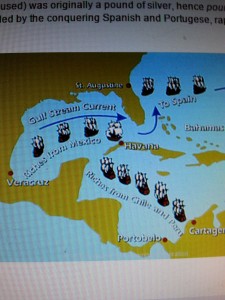 Gálvez, a mere whippersnapper at 35, sailed to Havana and demanded the help of generals and admirals twice his age. When they refused, he had the good fortune to be able to call on his uncle, José de Gálvez, the head of the Council of the Indies, to send him ships. With his uncle’s backing, he sailed into Pensacola harbor, as we all know, alone. The rest of his men and ships finally followed and within three months he had defeated the British at Pensacola.
Gálvez, a mere whippersnapper at 35, sailed to Havana and demanded the help of generals and admirals twice his age. When they refused, he had the good fortune to be able to call on his uncle, José de Gálvez, the head of the Council of the Indies, to send him ships. With his uncle’s backing, he sailed into Pensacola harbor, as we all know, alone. The rest of his men and ships finally followed and within three months he had defeated the British at Pensacola.
He went on to defeat the British in the Bahamas the next year. If the French had not signed the peace treaty with the British in 1783, Gálvez would have beaten the British in Jamaica and removed them entirely from the Caribbean.
For his successes, Gálvez was named Viceroy of Mexico. For a regrettably short year and a half, 1785-1786, he put his leadership skills to work helping the people of Mexico. He convinced the wealthy elite to help the starving poor. He completed the magnificent palace of Chapultepec begun by his father. He encouraged arts and education among students, and theater and bullfighting among the populace of Mexico City.
His untimely and far-too-early death in 1786 from amoebic dysentery robbed Mexico and Spain of a great leader. But he left us a legacy of leadership that should be spread far and wide. The Granaderos y Damas de Gálvez are determined to do just that.
Viva Gálvez

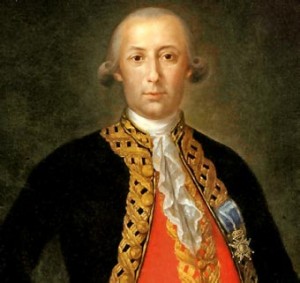
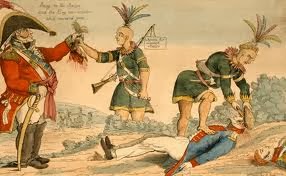
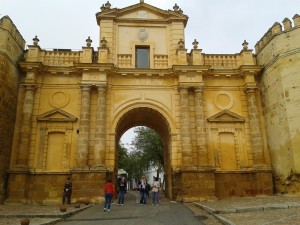
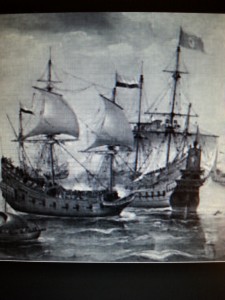
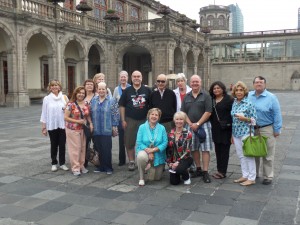
… [Trackback]
[…] There you will find 8960 more Info on that Topic: carolinacastillocrimm.com/tidbits-from-history-on-galvez-leadership/ […]
… [Trackback]
[…] Information to that Topic: carolinacastillocrimm.com/tidbits-from-history-on-galvez-leadership/ […]
… [Trackback]
[…] Read More on on that Topic: carolinacastillocrimm.com/tidbits-from-history-on-galvez-leadership/ […]
… [Trackback]
[…] Find More Info here on that Topic: carolinacastillocrimm.com/tidbits-from-history-on-galvez-leadership/ […]
… [Trackback]
[…] Information on that Topic: carolinacastillocrimm.com/tidbits-from-history-on-galvez-leadership/ […]
… [Trackback]
[…] Here you will find 28091 additional Info to that Topic: carolinacastillocrimm.com/tidbits-from-history-on-galvez-leadership/ […]
… [Trackback]
[…] Info to that Topic: carolinacastillocrimm.com/tidbits-from-history-on-galvez-leadership/ […]
… [Trackback]
[…] Find More Information here to that Topic: carolinacastillocrimm.com/tidbits-from-history-on-galvez-leadership/ […]
… [Trackback]
[…] Find More on on that Topic: carolinacastillocrimm.com/tidbits-from-history-on-galvez-leadership/ […]
… [Trackback]
[…] Find More here on that Topic: carolinacastillocrimm.com/tidbits-from-history-on-galvez-leadership/ […]
… [Trackback]
[…] Info to that Topic: carolinacastillocrimm.com/tidbits-from-history-on-galvez-leadership/ […]
… [Trackback]
[…] There you will find 77577 additional Information to that Topic: carolinacastillocrimm.com/tidbits-from-history-on-galvez-leadership/ […]
… [Trackback]
[…] Read More Info here on that Topic: carolinacastillocrimm.com/tidbits-from-history-on-galvez-leadership/ […]
… [Trackback]
[…] There you will find 57235 additional Info to that Topic: carolinacastillocrimm.com/tidbits-from-history-on-galvez-leadership/ […]
… [Trackback]
[…] Information to that Topic: carolinacastillocrimm.com/tidbits-from-history-on-galvez-leadership/ […]
… [Trackback]
[…] Here you can find 55381 more Info on that Topic: carolinacastillocrimm.com/tidbits-from-history-on-galvez-leadership/ […]
… [Trackback]
[…] Read More Information here to that Topic: carolinacastillocrimm.com/tidbits-from-history-on-galvez-leadership/ […]
… [Trackback]
[…] Information to that Topic: carolinacastillocrimm.com/tidbits-from-history-on-galvez-leadership/ […]
… [Trackback]
[…] Info on that Topic: carolinacastillocrimm.com/tidbits-from-history-on-galvez-leadership/ […]
… [Trackback]
[…] Find More Information here on that Topic: carolinacastillocrimm.com/tidbits-from-history-on-galvez-leadership/ […]
… [Trackback]
[…] Here you will find 20092 more Information on that Topic: carolinacastillocrimm.com/tidbits-from-history-on-galvez-leadership/ […]
… [Trackback]
[…] Find More Info here on that Topic: carolinacastillocrimm.com/tidbits-from-history-on-galvez-leadership/ […]
… [Trackback]
[…] Information to that Topic: carolinacastillocrimm.com/tidbits-from-history-on-galvez-leadership/ […]
… [Trackback]
[…] Information on that Topic: carolinacastillocrimm.com/tidbits-from-history-on-galvez-leadership/ […]
… [Trackback]
[…] Read More on that Topic: carolinacastillocrimm.com/tidbits-from-history-on-galvez-leadership/ […]
… [Trackback]
[…] Find More to that Topic: carolinacastillocrimm.com/tidbits-from-history-on-galvez-leadership/ […]
… [Trackback]
[…] Read More Info here on that Topic: carolinacastillocrimm.com/tidbits-from-history-on-galvez-leadership/ […]
… [Trackback]
[…] Information to that Topic: carolinacastillocrimm.com/tidbits-from-history-on-galvez-leadership/ […]